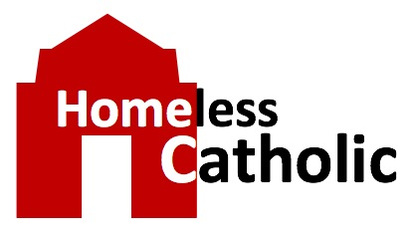Spiritual poverty will be revealed
Does anyone even remotely imagine that mankind is well on the way toward creating a “perfect” society? No matter the abundance of good will we frequently encounter in interacting with our friends and neighbors, don’t we also sense a spiritual poverty that is just as real, though we might prefer that it remain hidden?
Reflection - Virus
http://www.usccb.org/bible/readings/032120.cfm
Hosea 6:1-6
Luke 18:9-14
Today was at least the fourth time I read the words of Hosea; it was as if I actually heard them for the first time. Why? Because the progressive events that continued to unfold from the presence of a tiny virus had persistently occupied every dimension and corner and aspect of every media throughout the entire week; and the viral presence which they proclaimed to be so menacing was a hidden bug in every conversation.
Go back once more to the text from Hosea.
Read again the admonition of this prophet.
“Come, let us return to the LORD,
it is he who has rent, but he will heal us;
he has struck us, but he will bind our wounds.
He will revive us after two days;
on the third day he will raise us up,
to live in his presence.
Let us know, let us strive to know the LORD;
as certain as the dawn is his coming,
and his judgment shines forth like the light of day!
He will come to us like the rain,
like spring rain that waters the earth.
(Hosea 6:1-6)
There are those who will read these words and assume that I stand with those who acclaim the virus as God’s wrath and punishment. Nothing could be further from the truth. Punishment is something we can easily arrange for ourselves.
But let’s be clear about our situation. Does anyone find comfort in our ability to create more effective, more powerful, more “bulletproof” weapons? Is there mounting pride in knowing that everyone (at least in this country) can have a big-screen TV or the latest smartphone? Does anyone even remotely imagine that mankind is well on the way toward creating a “perfect” society? No matter the abundance of good will we frequently encounter in interacting with our friends and neighbors, don’t we also sense a spiritual poverty that is just as real, though we might prefer that it remain hidden?
Recall in expanded detail the fullness of what the Pharisee was saying in this Gospel reading.
- I am not like the rest of humanity
- I am not greedy.
- I am not dishonest.
- I am not adulterous.
- I am not even like this tax collector.
- I fast twice a week.
- I pay tithes on my whole income.
The Gospel introduction to this man’s prayer is revealing: “The Pharisee took up his position and spoke this prayer to himself.”
Is the scene truly different from the high fives we give ourselves in conquering the latest video game, in pursuing the topmost rung on the corporate ladder, in the self-satisfaction we derive from our latest big-item purchase? Is it even any different than our own moral judgment upon ourselves?
I have heard some say that this viral pandemic is evidence of God’s judgment on a sinful world, even citing it as they foretell the immanence of the Second Coming. For me, that argument carries little weight. I have heard others say it is the the work of Satan, seeking to create chaos and see mankind suffer. For me, this argument is closer to the truth. But in either case it is most important to remember the words of Paul: “We know that in everything God works for good with those who love him.” (Romans 8:28) This is foundational to our faith. And it is equally imperative that we reflect on Paul’s words in the letter to the Hebrews: “The Lord disciplines him whom he loves, and chastises every son whom he receives. It is for discipline that you have to endure. God is treating you as sons; for what son [or daughter] is there whom his father does not discipline?” (Hebrews 12:6-7) Only God is in a position to provide correction and discipline. Unfortunately, it is also true that, only with his guidance are we able to say: “O God, be merciful to me a sinner.”
I long ago quit believing in luck and coincidence. So, for me, it is significant that the seriousness of this problem with this simplest of active beings should come to the fore in this country during the week of Ash Wednesday.
Many in my neighborhood and, as I have heard, also in countless others, people have stepped up during these difficult days to care for their neighbors, particularly for those most vulnerable. What a blessing that we should once more be reminded to love our neighbor as ourselves. But that is not sufficient; for that commandment flows from and has meaning only in the context of the first.
Once again we are called: “Come, let us return to the LORD.”

